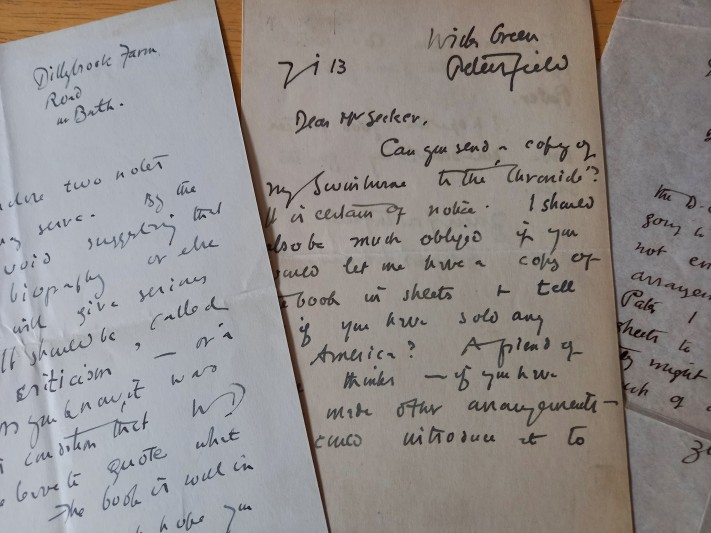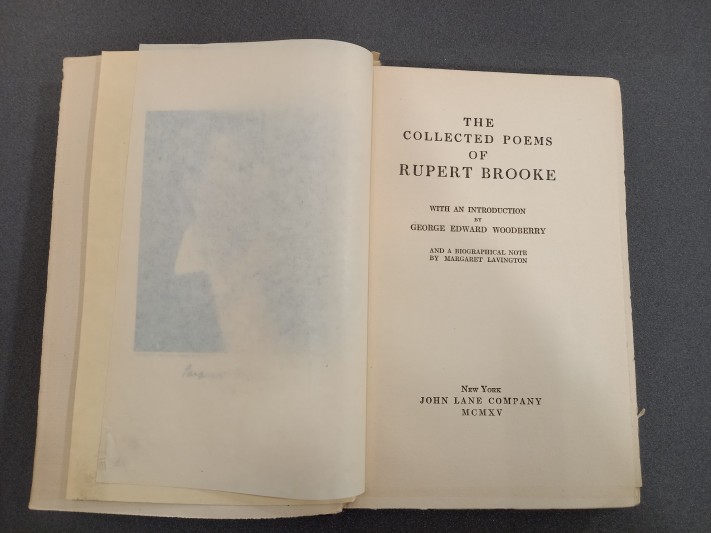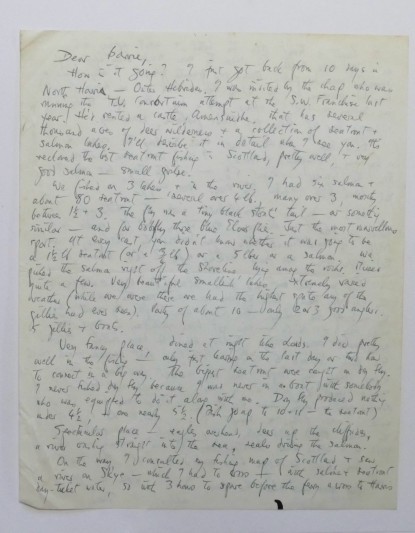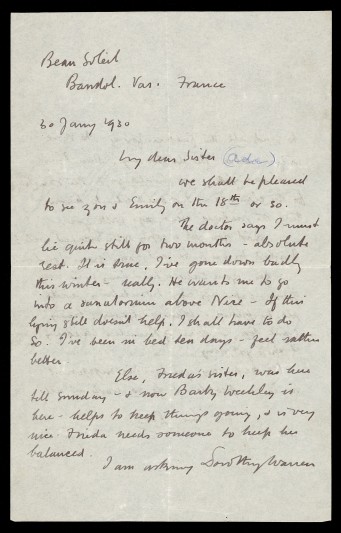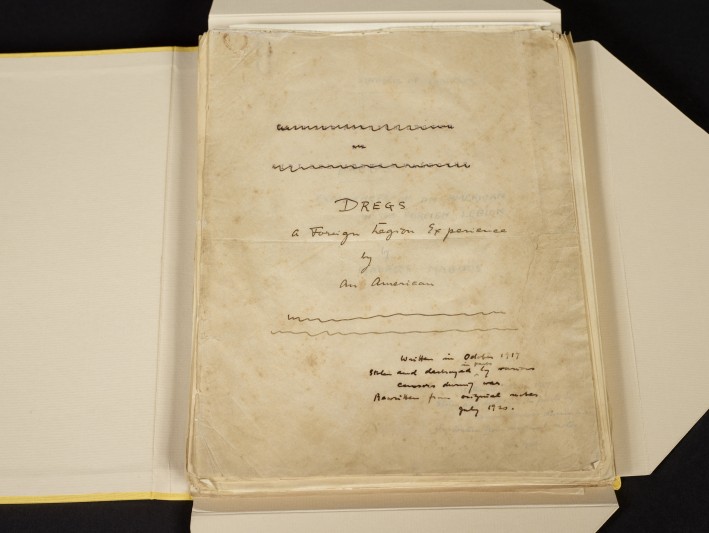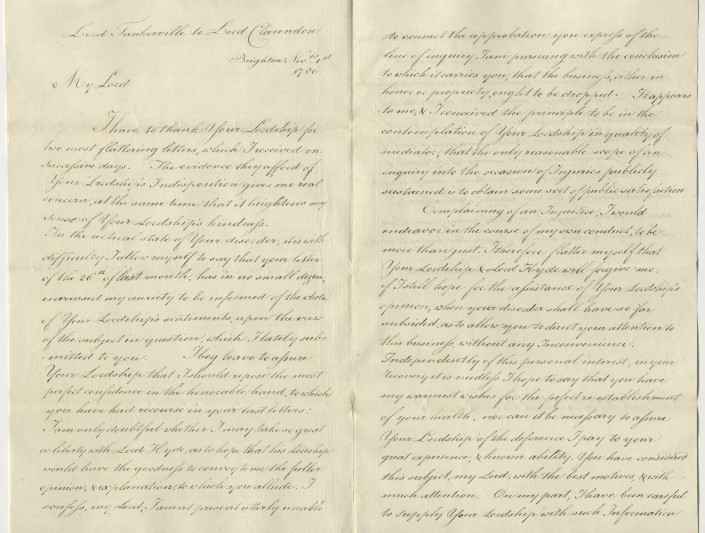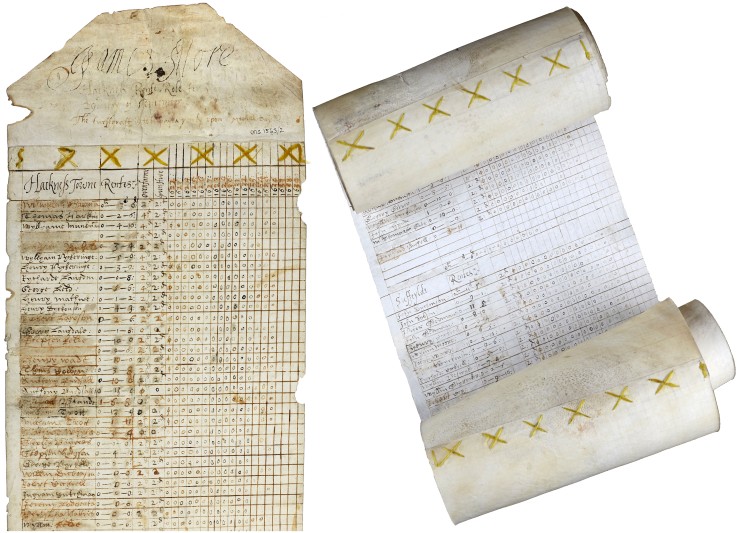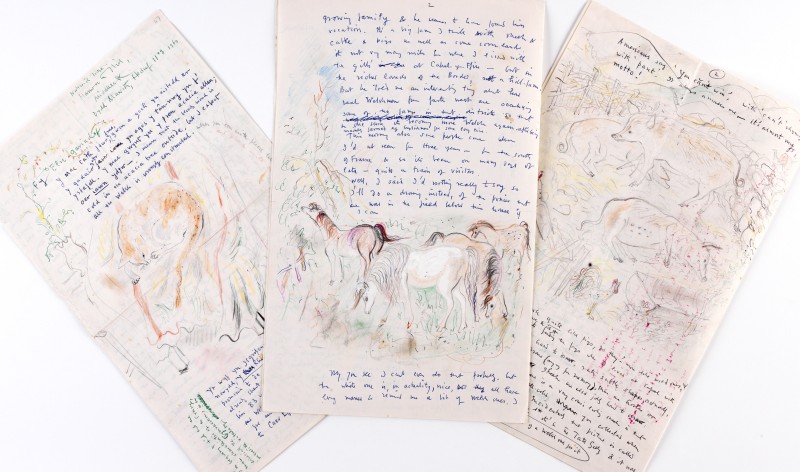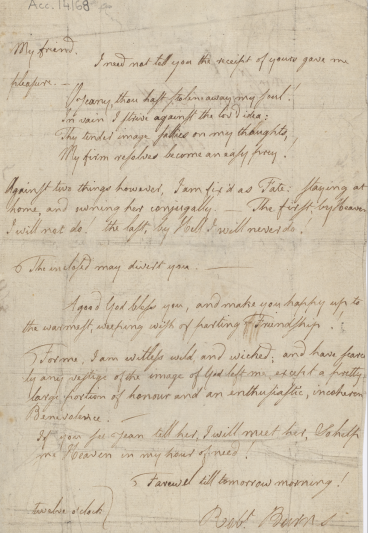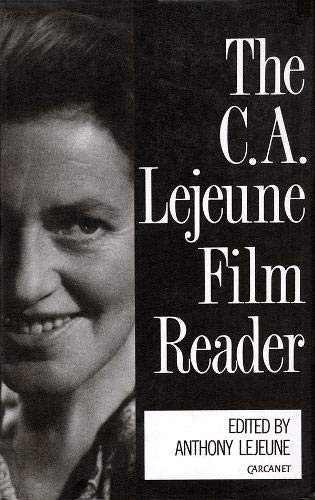These letters are more interesting than they might appear at first glance, being written in a period when Edward Thomas’s income, from what he termed ‘hack writing’ was going down - in fact by about one third in a couple years. Whilst a ‘drop’ from £300 per annum to £200 does not seem significant, in today’s ‘money’ that is the equivalent of £10,000 per annum at a time when he was also trying to maintain and school a family with three children.
Search FNL grants since 1931
Jeremy Mitchell, Chair of the Edward Thomas Fellowship and a Trustee of Petersfield Museum, writes: Since 2017 an extensive and important collection (gifted by the family of the late Tim Wilton-Steer) of over 2,000 books and other items, including som
An internationally significant literary archive of the British-born expressionist artist Barrie Cooke (1931-2014), fisherman and friend of poets, and an associated collection of 150 images he made in response to their work. Cooke moved to Ireland in 1954, and the archive represents an extraordinary record of creative collaboration. Cooke cast a wry and often rapturous eye on his friends’ writing, producing some 150 charcoal drawings, monotypes, watercolours and lithographs of Ted Hughes and Seamus Heaney’s poetry over a span of 35 years.
Autograph letter to his sister, Ada, and postcards to his niece. Although Lawrence was a prolific letter writer and over 5,500 letters are published in the Letters of D. H. Lawrence (Cambridge University Press, 8 vols., 1979-2000), comparatively few letters and postcards to family members have survived. These have special significance because they provide valuable insights into relationships which are often invisible to, and overlooked by, critics and biographers who are more interested in his friendships with literary figures and publisher
Mark Dorrington, Keeper of Manuscripts and Special Collections writes: The University of Nottingham is extremely grateful to the Friends of the National Libraries for support
Correspondence to and from Tankerville, relating to the Dashwood Affair. The correspondents are Lords Cartaret and Tankerville, William Pitt and Lord Clarendon. Clarendon had held the office of Postmaster General between 1763-1765 and was returned to office in 1786 following Tankerville’s dismissal. The letters cover the period June 1786-December 1786.
The splendid rent roll listed the rents received from properties in and around Hackness for the years 1622 to 1639 and was very clearly an escape from the archive of the Derwent family of Hackness. This archive, which has been held by the Record Office since 1946, includes an early rental for 1605 to 1622, and a long series of rentals from 1650 to 1839. The rental for sale partly filled a significant gap in the sequence and we are very grateful to FNL whose generosity allowed us to secure it and return it to the archive.
126 letters of the artist, engraver and poet David Jones to his friend Valerie Wynne-Williams (née Price). When they first met in 1958 Jones was in his early sixties and Price nearly forty years his junior. Whilst their relationship was entirely platonic, Jones was undoubtedly besotted with Valerie and the letters are certainly, in part, love letters to her.
Four letters and a poem of Robert Burns. NLS has one of the most comprehensive collections of Burns manuscripts to be found anywhere in the world, and the addition of these manuscripts greatly complements our collections. As most of these manuscripts (Acc.14167-14171) have not been seen since at least the 1930s their addition to the Library’s collections are timely both to recent scholarly projects, which seek to bring out new editions of Burns’s works, but also to the wider public.
Caroline Alice Lejeune (1897-1973) is an important figure in the history of film criticism, and in the history of women of renown from Manchester. While archives relating to the production of a particular film or the work of specific directors have occasionally appeared at auction, very few archives analogous to the present one have appeared on the open market.
